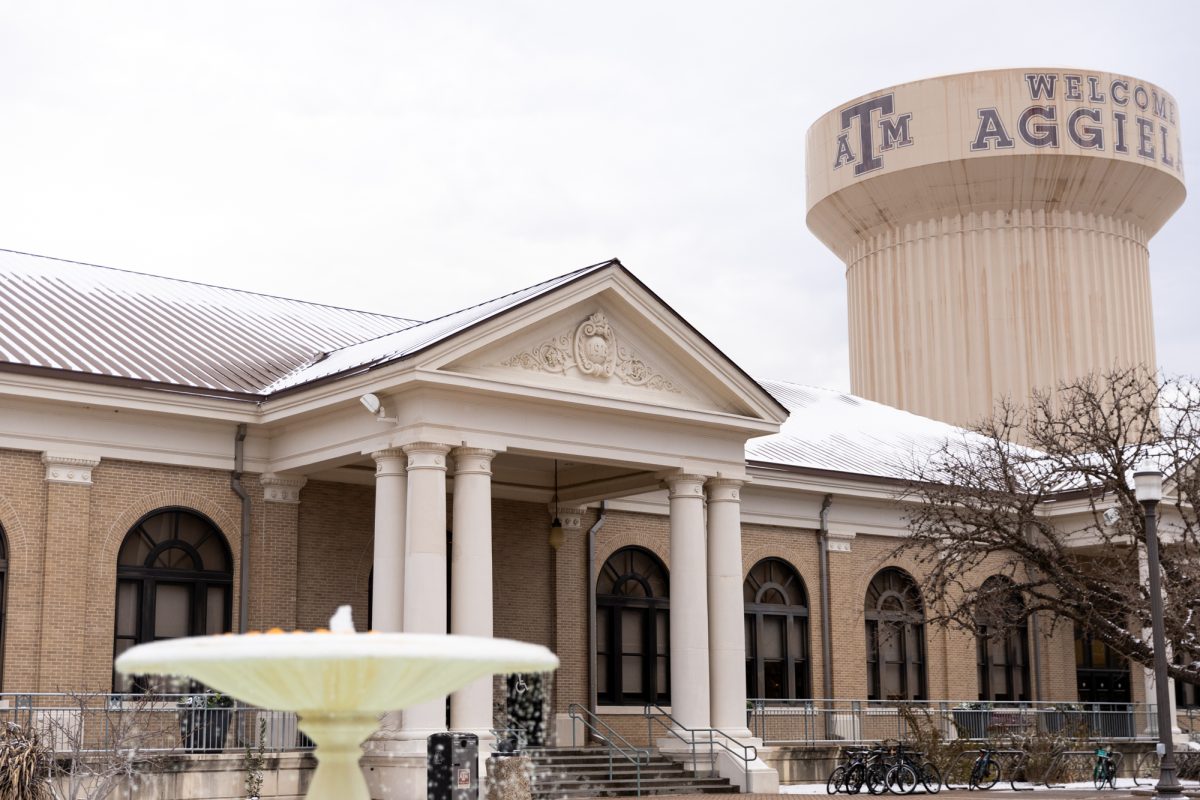“What happens to a dream deferred?” Langston Hughes asks in his 1951 poem “Harlem.”
The poem is many things, but it’s definitely not a paean to optimism.
Nearly 70 years later, Hughes’ magnum opus seems eerily prescient for those graduating, like myself. Receiving a degree amid an economic crash, I imagine, is not unlike what Hughes experienced in the Harlem Renaissance and the riots that followed. For students like me, the achievement of graduation is tempered by the foreboding clouds of uncertainty dotting the horizon.
Should we “run” by setting sail on the now choppy seas of professional possibility or stay behind and “fester” once more for another degree? These questions are probably coursing through the minds of many graduates this semester, and I feel like I can address them.
In May, I will receive my second degree from Texas A&M, almost a decade after I received my bachelors in the wake of the Great Recession back in 2011. I graduated as a biology major, a degree whose worth outside of graduate schools or professional programs is perhaps best summed up in its abbreviation: B.S.
Nevertheless, I thought I would easily be able to land a job performing menial lab work for one of the institutions around the Texas Medical Center. I was wrong. Instead, I ended up teaching science at a private school in north Houston. While I discovered the fulfillment that only teaching can give, the compensation was criminally incommensurate with my workload. And I soon burned out.
Unlike many Aggies, however, I wasn’t from a wealthy family and had no trust fund fallback plan. So I resorted to working a minimum wage job at Kroger. Although I was quickly able to find another gig, those few weeks were the lowest point in my life.
During that time, the vaunted Aggie Network seemed more like an impotent abstraction than some gilded association. And while my parents were extremely supportive, I almost craved their displeasure as a sort of masochistic release. When leaving for my shifts at Kroger, I was so mortified I would take off my Aggie ring, like an adulterer pitifully trying to preserve some sanctity before desecrating his vows. Even today, I abhor going there, half-convinced I’ll see the spectre of a broken past-self, lurking behind the cake display.
In retrospect, I realize how important it was for me to have that experience. I needed to debase my ego and exorcise the naive conceptions I harbored about material success.
But the difficulty of those times also came with ease. Since then, I went back to school, returned to A&M as a researcher in the Vet School and have garnered several publications to my name. No, life has not followed the career plans I envisioned years ago. Was I disappointed? Immensely. But not anymore, I have learned a job shouldn’t be where your life derives meaning.
As I finish up my current degree designed to bridge my scientific expertise to the world of business, I stand at the shore of a tumultuous future with fellow graduates. But I’ve been here before.
To my peers: Prepare to be blamed for your misfortune, but do not use the vitriol as an excuse for complacency. When it comes to your deferred dreams, do not “let them sag like a heavy load” like I did. Evolve, do not be sessile and resist drowning in despairing “what ifs.” Years from now, you will realize the price of dreams is not necessarily money, but that “unfathomable sea” we must all equally traverse.
To conclude, my experiences have led me to affirm the last line of Hughes’ poem. As someone who has orphaned many dreams over the years, sometimes, the bitter truth is that it’s better to let them just “explode.” Give yourself a moment to mourn, but keep moving. Take it from me: “time waits for no one.”
On dreams deferred
April 16, 2020
Photo by Photo by Meredith Seaver
Texas A&M Spring 2020 commencement ceremony is currently postponed.
0
Donate to The Battalion
$2065
$5000
Contributed
Our Goal
Your donation will support the student journalists of Texas A&M University - College Station. Your contribution will allow us to purchase equipment and cover our annual website hosting costs, in addition to paying freelance staffers for their work, travel costs for coverage and more!
More to Discover









